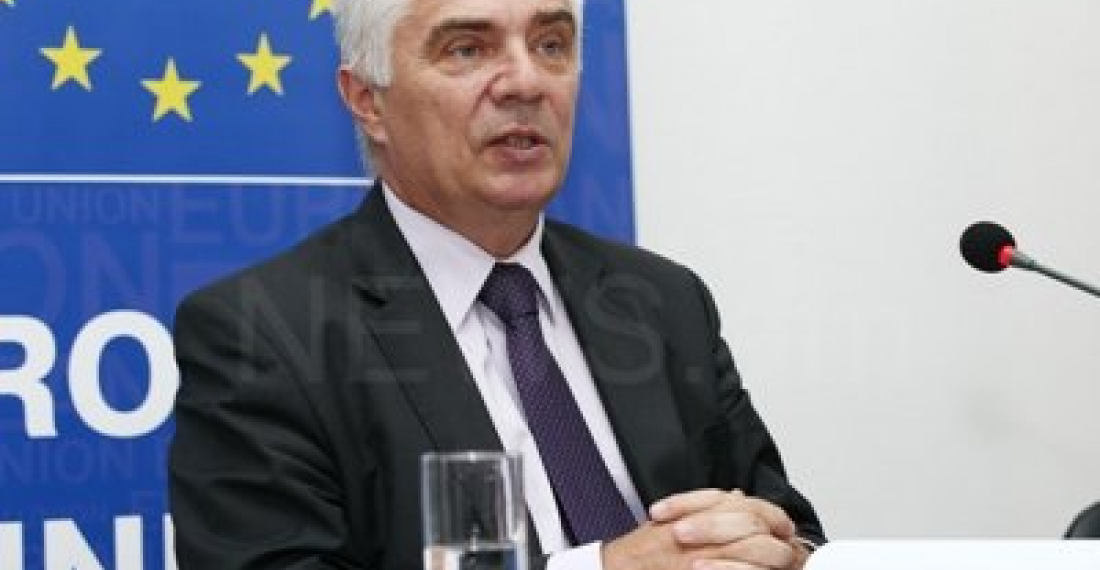Глава делегации Европейского союза в Армении, Петр Свитальски, дал положительную оценку отношениям между Европейским Союзом и Арменией, в ходе встречи с журналистами в пресс-центре в Ереване, во вторник. Свитальски сказал, что 2016 год был насыщенным, но успешным для отношений ЕС-Армения. "Мы ожидаем, что импульс в отношениях сохранится и они выйдут на новый уровень в 2017 году, когда мы завершим работу над новым рамочным соглашением [между ЕС и Арменией]".
Глава Представительства ЕС отметил, что в 2016 году Европейский Союз перечислил 62 млн. евро в рамках помощи в целях развития Армении и, что также подписаны соглашение на выделение еще 50 млн. евро.
Свитальски отметил пять приоритетов ЕС в отношениях с Арменией: (а) успешная реализация Избирательного проекта, что приведет к хорошему проведению выборов в апреле; (b) улучшение делового климата; (c) сотрудничество в области борьбы с коррупцией; (d) реализация договоренностей, направленных на поддержку прав человека, по которым есть четкие обязательства; (e) укрепление независимости судебной системы, учитывая то, что ЕС уже выделил 50 миллионов евро на реформирование судебной системы.
Свитальски сообщил, что переговоры по новому рамочному соглашению "сильно продвинулись и переговорщики очень близки к заключению соглашения, и если все пойдет хорошо завершение переговоров станет важным событием в 2017 году". Дипломат ЕС заявил, что все еще остаются открытые вопросы, "но у нас нет никаких оснований полагать, что они не могут быть преодолены". Он отметил, что среди этих открытых вопросов есть новые обстоятельства, которые возникли после 2013 года. Он добавил, что со своей стороны ЕС видит "искренние усилия и конструктивный подход со стороны Армении".
Глава делегации ЕС в Армении также отметил, что обе стороны также завершают работу над двумя другими соглашениями: первое определит партнерские приоритеты двух сторон и обозначит их в политически обязательном документе; второй документ определит приоритеты развития, над которыми обе стороны будут совместно работать до 2020 года.
Свитальски заявил, что ЕС придает большое значение предстоящим парламентским выборам в апреле. "Хорошие, честные, справедливые и прозрачные выборы будут способствовать росту отношений, открытию новых возможностей сотрудничества и созданию благоприятного климата для будущего". Он добавил, что "Европейский Союз вложил много - как в денежном выражении, так и в виде политической поддержки, поэтому мы серьезно заинтересованы в успехе выборов". Вместе с тем посол Свитальски подчеркнул, что ЕС заинтересован в чистой природе избирательного процесса, а не в конкретных вопросах или личностях. Он сказал, что есть две сферы, представляющие особое значение - предупреждение политической коррупции [подкуп избирателей] и использования административных ресурсов. Он сказал, что уже есть хорошая нормативно-правовая база, но сейчас необходима практическая работа с ней. "Я жду с нетерпением хороших выборов".
Вы можете прослушать подкаст с пресс-конференции здесь
источник: commonspace.eu
фото: посол Петр Свитальски, глава делегации ЕС в Армении, на встрече с журналистами в пресс-центре в Ереване, 24 января 2017 года.







